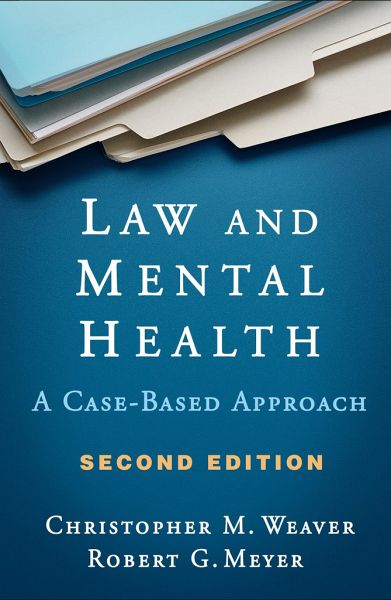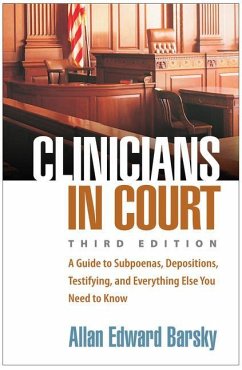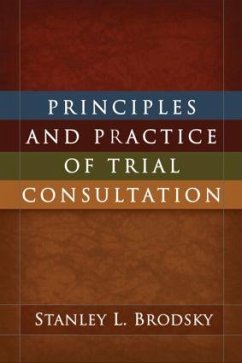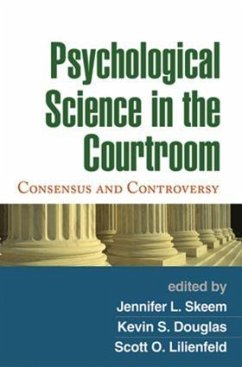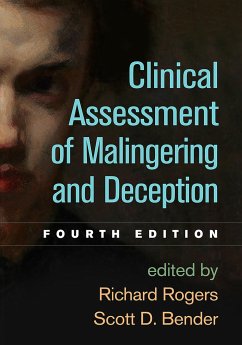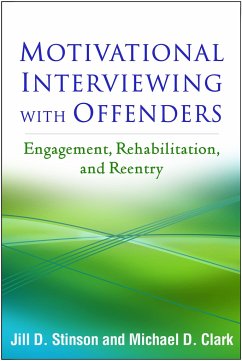Versandkostenfrei!
Versandfertig in über 4 Wochen
Weitere Ausgaben:

PAYBACK Punkte
34 °P sammeln!




Law and Mental Health
Christopher M. Weaver, PhD, is Associate Professor and Director of the Forensic Psychology Program in the Department of Psychology at Palo Alto University, where he teaches in the areas of forensic psychology, research methods, and statistics. He has held research positions in the Departments of Psychiatry at the University of California, San Francisco, and Stanford University, along with the U.S. Department of Veterans Affairs National Center for PTSD in Menlo Park, California. Dr. Weaver's publications and research interests center on law enforcement training and the assessment of malingered posttraumatic stress disorder. Robert G. Meyer, PhD, ABPP, is Professor Emeritus at the University of Louisville. He is board certified in both clinical and forensic psychology and is a Fellow of Division 12 (Society of Clinical Psychology) and Division 41 (American Psychology-Law Society) of the American Psychological Association. Dr. Meyer has published over 60 articles, 23 book chapters, and 14 books. He is past editor of the Bulletin of the American Academy of Forensic Psychology and past president of the Kentucky Psychological Association. Dr. Meyer is a recipient of the Lifetime Achievement Award from the American Academy of Forensic Psychology and a corecipient of a regional Grawemeyer Award for innovative curriculum development.
Produktdetails
- Verlag: Guilford Publications
- 2nd edition
- Seitenzahl: 430
- Erscheinungstermin: 2. September 2019
- Englisch
- Abmessung: 229mm x 150mm x 33mm
- Gewicht: 726g
- ISBN-13: 9781462540471
- ISBN-10: 1462540473
- Artikelnr.: 56790456
Herstellerkennzeichnung
Libri GmbH
Europaallee 1
36244 Bad Hersfeld
gpsr@libri.de
Für dieses Produkt wurde noch keine Bewertung abgegeben. Wir würden uns sehr freuen, wenn du die erste Bewertung schreibst!
Eine Bewertung schreiben
Eine Bewertung schreiben
Andere Kunden interessierten sich für



